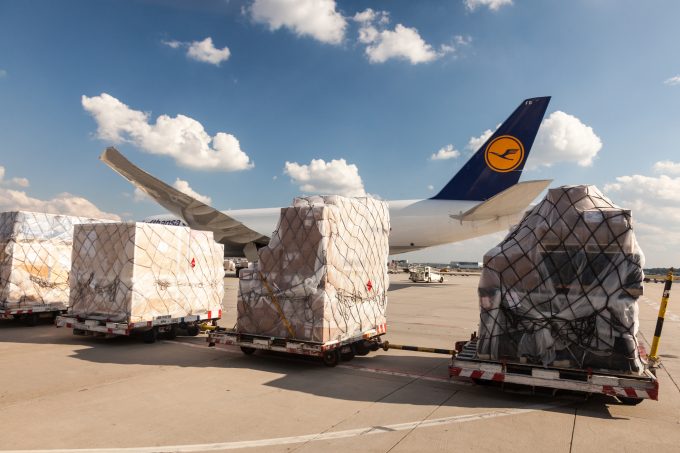Hapag-Lloyd Q1 results: 'significant swings' creating uncertainty in the market
Despite seeing first-quarter carryings increase 6.8% to 3m teu, German carrier Hapag-Lloyd saw revenues and ...

Both Lufthansa Group and AF-KLM Group specifically blamed cargo for glum overall Q1 performances, with yields and unit revenues down.
The Franco-Dutch carrier said yesterday that weak cargo revenues and disruption had led to the group’s poor Q1 operating loss of €489m ($521.8m).
Cargo revenues fell 16.5%, to €562m, while traffic cargo revenues fell more than 23%, to €441m. Capacity rose 5%, and volumes were up 3.7%, to 217,000 tons. But unit revenue per ATK fell 27%, to €12.77.
“The demand in the airfreight industry in the first quarter was higher than the capacity growth and was driven by e-commerce from Asia and the Red Sea disruption,” explained the group.
“The group was limited in its ability to benefit from this tailwind due to relatively low capacity on China and payload restrictions on Asian flights due to the Russian airspace closure.”
It added that “unit revenue was below last year, driven by a -26% yield decrease and the challenging implementation of an IT system”, which it said had “weighed on the revenues and profitability”.
The carrier didn’t specify which IT system, but in January it announced it was implementing Accelya’s cargo revenue accounting system.
Load factors were low at Air France, at 40%, while capacity rose 6% and RTKs went up 0.5%. At KLM, load factors were a healthier 56%, on capacity up 3.6% and RTKs up 7.6%.
“Despite the challenging start of the year marked by continued geopolitical tensions, operational disruptions and headwinds on our cargo business, we remain on track for a resilient trajectory for the coming quarters.”
AF-KLM Group’s total revenues for Q1 rose 5.1%, to €6.6bn. Ebitda fell by €110m, to €176m. The group made a net loss of €480m, down from a loss of €143 last year.
It added that it was expecting a good summer, in part because of the Paris Olympics.
Lufthansa Group also reckoned the summer would be better, after citing a “challenging market environment in airfreight” as well as labour strikes for the declines it saw in its cargo business in the first quarter.
Cargo capacity was up 10% owing to increased belly space, but that was matched by an 11% increase in sales, while the cargo load factor rose 0.6 percentage points to 59.3%. However, said the group, traffic revenues at Lufthansa Cargo fell by 16%, to €757m, down from €902m, as yields declined.
In the overall logistics segment, which includes Jettainer, time:matters, Heyworld, 50% of Aerologic and CB Customs broker, first-quarter capacity was up 7% year on year, sales were up 10% and the load factor rose 2.1pp to 63.3%.
“However, yields fell in all of Lufthansa Cargo’s traffic areas and were down 25% overall on the previous year; in the previous year, high demand as a result of global supply chain disruptions combined with limited supply had significantly supported the earnings trend,” noted the group.
Lower yields in the logistics business segment led to a 17% decline in traffic revenue, to €641m, while overall in the unit revenues fell 16%, to €691m. Operating expenses rose 5%, to €737m, although the group added: “Increased staff costs due to wage and salary increases as well as higher depreciation and fees and charges were partially offset by lower fuel costs.”
Adjusted ebit declined year-on-year to a loss of €22m, down from -€151m. Capital expenditure fell from €146m the previous year, when advance payments on two 777Fs were due, to €8m. Employee numbers rose 2%, to 4,182.
Meanwhile, total revenues at Lufthansa Group were €7.39bn, up 5% yoy. Total net loss was €734m, a 57% increase on the loss of €467m a year earlier.
Carsten Spohr, chairman of the executive board and CEO, said: “We are now leaving the first quarter behind us, which was mainly impacted by strikes, and are at a turning point. We have reached long-term wage agreements for the majority of our employees. This means planning certainty and clarity for the coming years.
“We are still seeing strong demand, which is even significantly higher than last year for the summer. We are therefore continuing to expand our offering and are growing on long-haul routes in particular. Our planes remain well filled throughout.
“One thing is already clear: it will be another very strong summer.”
Comment on this article